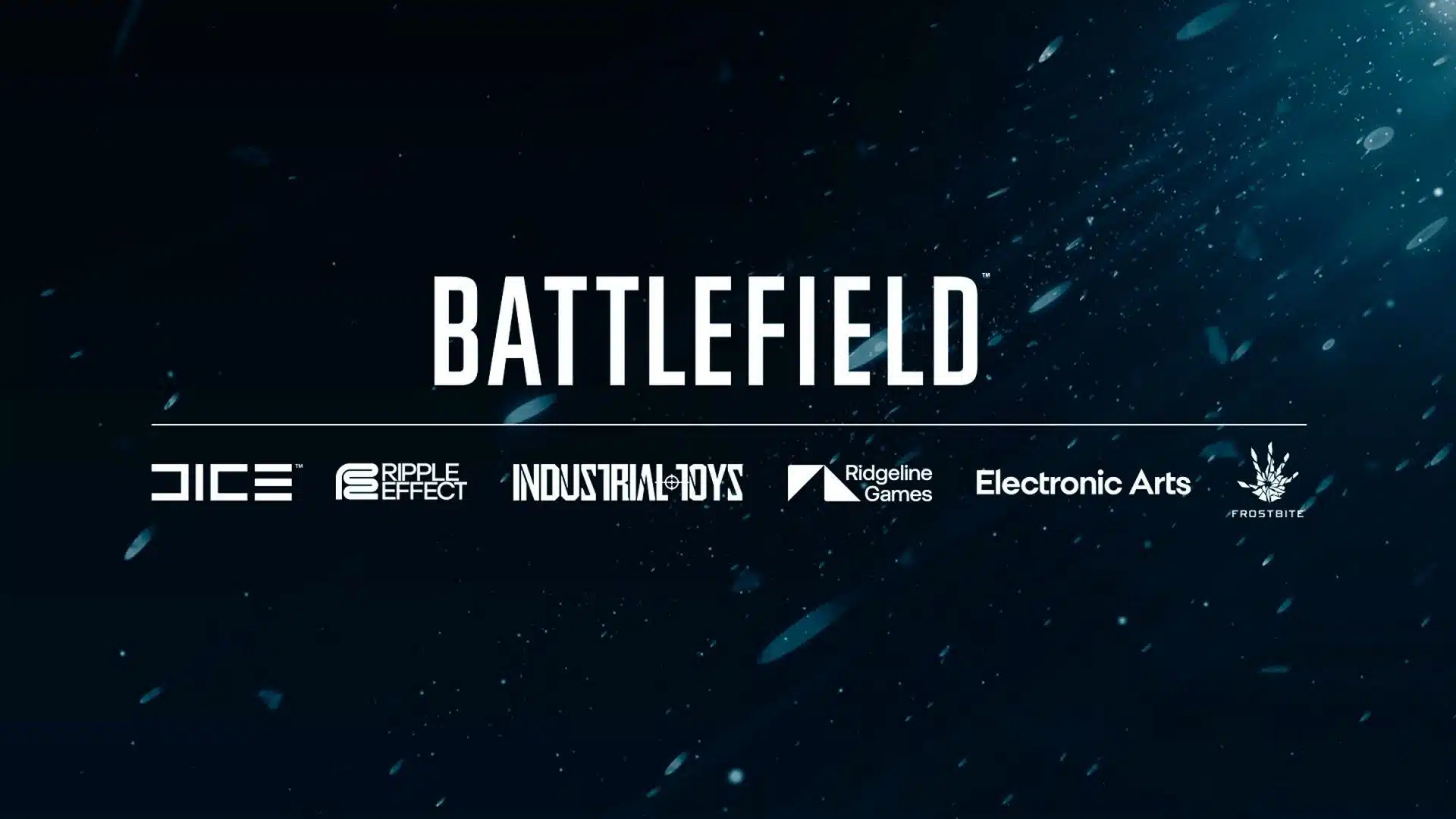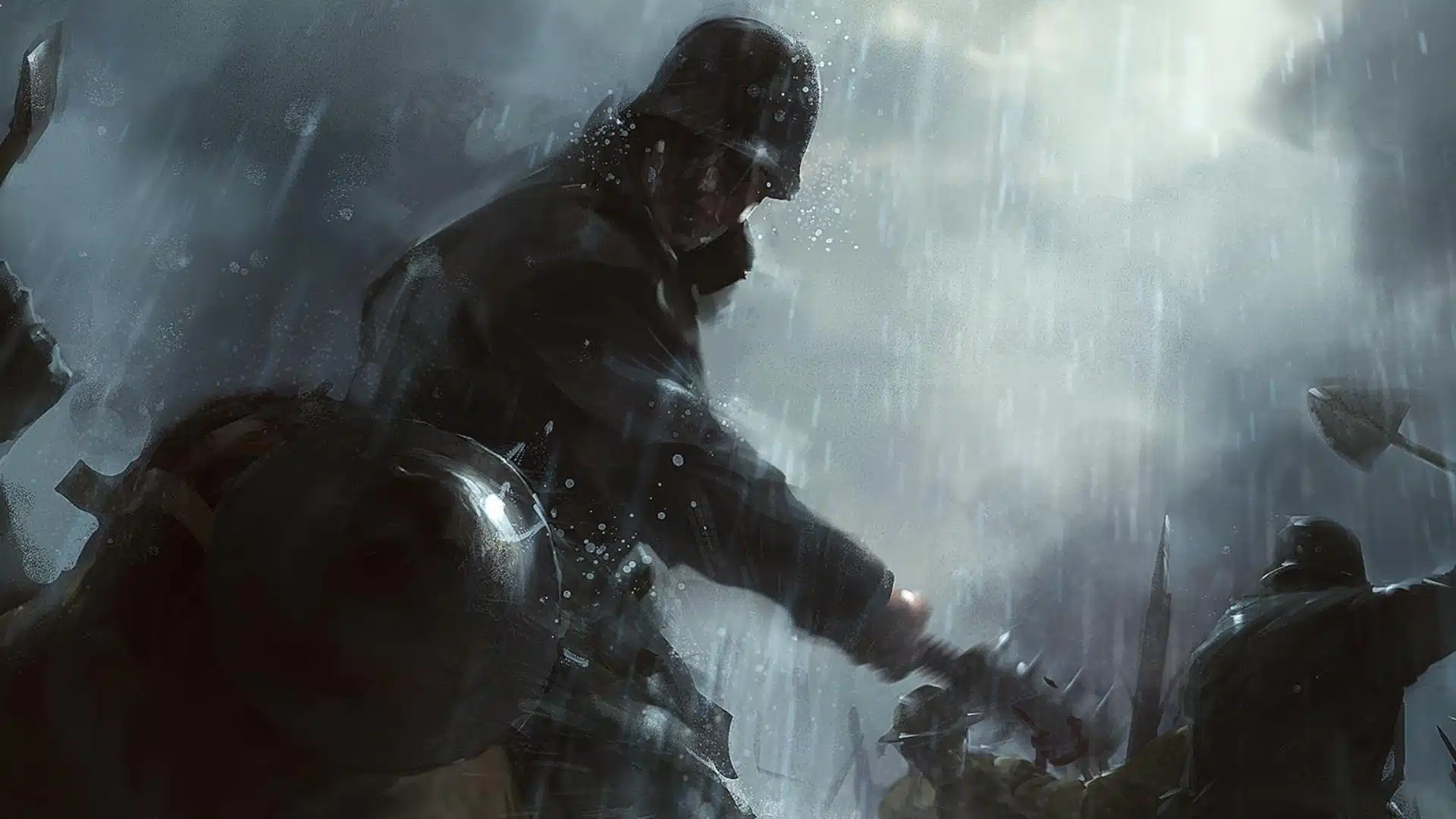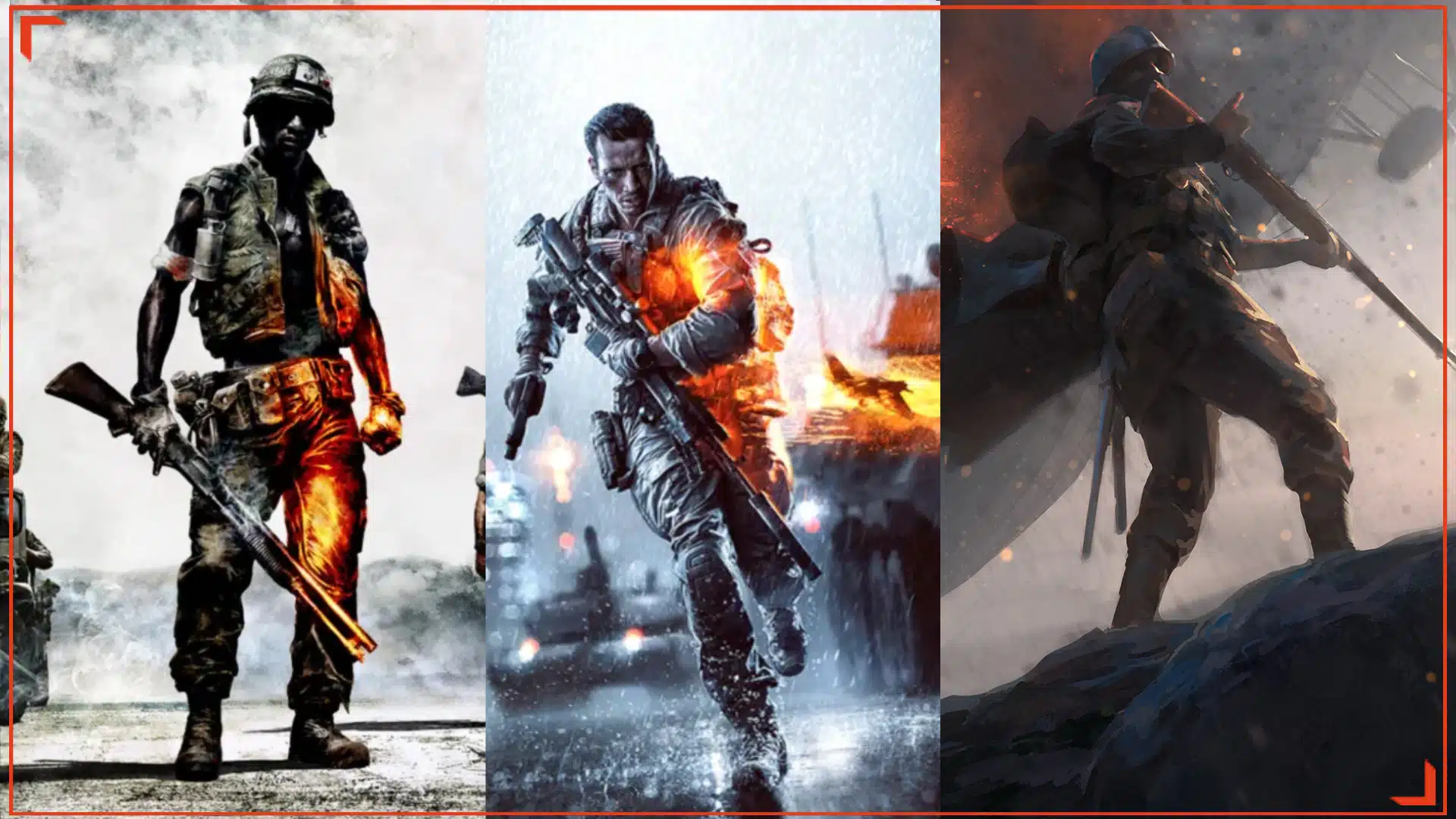Once upon a time, another studio took a crack at making a Battlefield game, but it didn’t turn out as fans had hoped. Since then, DICE has continued to be the primary studio leading the franchise, with support studios helping along the way. We think it’s time for that to change, as EA could learn a bit from Activision’s Call of Duty franchise regarding Battlefield development.
I want to clarify: I do not want a Battlefield game released yearly. It’s not what I’m referring to, BUT I will talk more about that, as it’s hard not to talk about it. So, what exactly do I mean?
Developer Cycle, Not Release Cycle
For the last 20 years, Activision has released a Call of Duty annually, rotating the games from one series to the next. The mainline has usually been Modern Warfare and Black Ops, with a third being a one-off from a specific era.
Activision has accomplished this by having not just one studio work on the franchise but three main ones: Infinity Ward, Treyarch, and Sledgehammer Games.

Every year, we see a new game from one of the studios, with alternating releases. Last year was Infinity Ward, this year Sledgehammer, and next Treyarch. That’s typically the cycle for Call of Duty releases, with this year being the exception of a direct sequel following the previous title. But beyond that, Call of Duty players could always experience a new take on the franchise as each studio attempts to bring something fresh and unique to their release. They might share the same name and core gameplay, but the Black Ops franchise differs from the Modern-era games, as do any World War Call of Duty.
It’s pretty exciting, and as a player, it gives me something to look forward to. Maybe I’m not a fan of this year’s release, but I can always look forward to next year as it’s a different studio with a different take.
Disregarding the release scheduling (for now), I think EA can learn a lot from that approach, but there are also some issues. Let’s first talk about the “good” first.
Why This Could Be a Good Thing (Plus, They’re Already Planning On Doing It)
Let’s face it: More often than not, Battlefield has launched in a highly buggy state. Fans fondly remember Battlefield 3 and BF4 as the best ones in the series, but they were buggy at launch too. There were some exceptions, such as Hardline (not by DICE and more on this later) and Battlefield V. But outside of those two, the Battlefield franchise is pretty much known to have buggy games with a fix-it-later mentality. Fans have come to accept that as expected in releases, which isn’t a good thing to be proud of.
Battlefield 2042 is a recent example, though that game had other issues it needed to overcome that went beyond just your usual gaggle of bugs and server issues. Mind you, it is in a better state now, but it took two years to get there.
But looking at the scope of these games, DICE always tries to one-up itself, offering bigger maps, more players, weather, etc. Remember Levolution? What about the insane level of graphics that Battlefield 1 and BFV had? I know Battlefield 2042 was a step back for many, but even there, the studio tried something new, offering some of the biggest maps in the franchise and supporting the highest number of players on them so far.
DICE’s ambitions are big with every release, yet it always seems like that gets overshadowed by the state those games are in. From a fan perspective, DICE could use more time between releases. It’s common in all Battlefield games and even EA’s Battlefront games, where it’s ship now, fix it later, with most of these games improving much later. The community jokes about these games feeling like early access titles at launch, and they aren’t wrong, but by the time they usually hit what many feel should have been their actual launch (in a stable state, etc.), support is nearing its end.
So having another studio work on another, possibly spinoff, Battlefield, could prove beneficial if it meant more time given to the studio.

This does appear to be the approach that EA is starting to build, as Ridgeline Games, a new studio formed in 2021, is leading a new single-player experience for Battlefield, with Ripple Effect also working on a new Battlefield experience, while DICE is working on the next big multiplayer experience for the franchise. But the question becomes, will these all be under one unified title, or will EA allow these studios to release each of their takes on their own?
I hope for the latter, as that could bring exciting things to the franchise. Specifically, more “spinoffs.”
While Battlefield is mostly known for its large-scale battles, the Bad Company series brought a take that many loved. That was full-scale destruction. It may have had smaller maps than what most are used to today, but that level of destruction — being able to flatten any building on the field — made it feel on par, if not bigger, than most Battlefield maps. The amount of things that could happen, that level of dynamics, made every match unpredictable as anything could happen.
However, it’s been 13 years since the last Bad Company game, and for whatever reason, EA never did follow up with a third game.
That’s where having multiple studios can come in, as DICE can continue to focus on the mainline franchise while another studio works on a series that can eventually become a mainline. When you think about it, you don’t look at Modern Warfare and Black Ops and go, Modern Warfare is the main series, with Black Ops as the spinoff. No, most will refer to Infinity Ward’s Call of Duty or Treyarch’s Call of Duty. They both, and any other Call of Duty games, coexist.
That has allowed some freedom in the games to do things the others can’t or won’t. We would have never gotten a zombie mode if Treyarch was forced to stick to the formula. Advanced Warfare and Infinite Warfare would have never happened either. I know those two latter examples have players divided, but it’s cool that something like that was allowed or happened for a franchise.
I’m aware that EA tried to do this with Battlefield Hardline, but that was an idea that may have been too radical for many fan base, even if I liked it myself for what it was.
That’s why it works with Call of Duty because, you know, no matter the idea, it’ll still probably feel like a Call of Duty game at the end of the day. Bad Company may have shifted the focus of large-scale battles in favor of medium- to small-scale battles, but the fanbase can agree that it was every bit of a Battlefield game as any other.
Building a rotation of developers could open up the franchise to games that are familiar but have their twist.

Imagine this: we get a mainline, traditional Battlefield, and for the next year, we get another Battlefield game, but this one is a faster-paced, maybe more of an arcade shooter (I can hear the screams already). This is akin to what we presume EA originally wanted to do with the rebooted Medal of Honor franchise, though that didn’t take due to the idea being half-baked, and of course, the Medal of Honor reboot didn’t exactly set the sales charts on fire.
With Vince Zampella now heading the Battlefield property at EA, I can’t think of a better person to lead this “sub” franchise of Battlefield that focuses on a faster pace than one of the people who introduced the Call of Duty multiplayer juggernaut (for those unaware, Zampella, along with David West, were the founders of Infinity Ward before departing and starting Respawn alongside other IW vets).
There are better directions out there, of course, but I think having multiple Battlefield games that feel familiar but are different enough is neat. Think about it: with how Battlefield 2042 launched, players were begging DICE to move on to the next one, but seeing that they were the only studio doing the games, moving on wasn’t exactly a good business option. We were stuck with what was there and will probably be for the next year, potentially longer if the next Battlefield doesn’t release next year. Again, the game is much better than it was at launch, and I’m glad DICE stuck around with it. But we could have had another Battlefield under a dev cycle by now.
This would also help players warm up to the idea of “spinoff” games that are different because if you dislike one year, then there’s always the next year or so franchise game to look forward to, and from a different studio.

Not to mention the extra time a studio like DICE may get in between releases since the other studio would help fill that release gap.
I’m not saying they would launch in a perfect bug-free state, but having multiple studios doing their Battlefield would be a perfect way to offer more development time for each game. If the expectation is that these games will last 2-3 years, with a new one dropping at the end of each, that would mean longer development. So instead of 2-3 years, the games could get 4-6 years if they each maintain the 2-3 year release timing. That extra year would go a long way for polishing.
Other benefits include developer knowledge. Since DICE made the Frostbite engine, they have the most experience with the engine, but having another studio learn its inner workings could offer insight that could be beneficial to all the studios. Frostbite could get years of improvements with more teams working on it, which is already happening with the engine branching out to other games published by EA.
Why This Could Be a Bad Thing
But of course, the main issue with this is the franchise’s quality might suffer. One might argue that this has happened with the Call of Duty franchise. There’s also brand saturation, which might occur, though I doubt that given Call of Duty’s popularity hasn’t waned, and one can throw in yearly sports games to the mix.
There’s also the chance or inevitable possibility of a studio “crunching” (an industry term used negatively when it comes to development) to hit these yearly/bi-yearly releases. Now more than ever, crunching is frowned upon by the industry and could turn away quality talent from EA’s Battlefield studios.

However, even with all the negatives, the fact that each one still sells millions of copies is enough for Activision to do it. EA will want to follow suit once they get a taste of that annual deluge of money. But EA doesn’t have the brand that Activision has with Call of Duty, which affords them a lame release now and then. Hardline came and went, never to be touched or mentioned again.
I wouldn’t want a new Battlefield game every year because the series has always hit differently than other shooters, and I feel it can stretch that longevity out.
Ultimately, though, it does seem like there are more positives to trying this route than just leaving it off the table. For all we know, EA might be planning this now. With the number of studios working on the upcoming entry in the franchise, you can tell EA still puts a lot of stock in the Battlefield name (as they should), even if recent years have shown otherwise. I’m all for what they have planned for, just as long as the games feel good and work off the feedback the series has received throughout the decades.

Just stop making trash Frostbite games full stop. Then I might actually start buying games from EA again (I believe Mass Effect 3 was the last one over a decade ago).
If the game that Frostbite is designed for is broken failure crap, then of course, other games that use the engine that it was NEVER designed for will fall even harder.
I was so close to buying those 2 NOT Frostbite Star Wars games by Respawn……….. but its just too hard. When I see that EA logo on anything I puke and run the other direction lol.